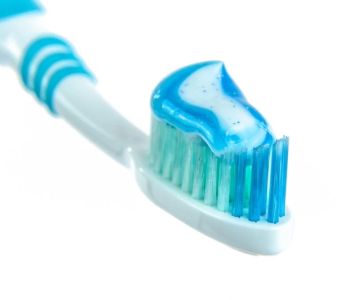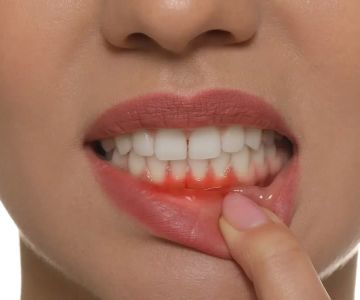Common Causes of Gum Bleeding
Gum bleeding can be caused by a variety of factors. Poor oral hygiene is a major culprit, including smoking and not brushing and flossing properly. Gingivitis, the early stage of gum disease, and periodontitis, a more advanced form, can lead to bleeding gums. Other oral conditions like trench mouth can also be the reason. Beyond oral health, diabetes, hormone changes during life stages such as puberty, pregnancy, or menopause, vitamin deficiencies like in vitamin K and C, blood-thinning medications, pernicious anemia, thrombocytopenia, hemophilia, von Willebrand disease, oral herpes, HIV/AIDS, stress, and leukemia can all contribute to gum bleeding.
Treatment and Care for Bleeding Gums
The treatment for bleeding gums depends on the underlying cause. If gum disease is the issue, dentists may recommend improved oral hygiene at home, antibiotics, tooth scaling and root planing, osseous surgery, or laser periodontal surgery. For cases where gum disease isn't the cause, healthcare providers will conduct tests to determine if conditions like diabetes, blood-clotting disorders, or vitamin deficiencies are present and provide appropriate treatment.
Home Remedies and Precautions
To stop bleeding gums at home, it's recommended to brush two to three times a day, floss daily, use a soft-bristled toothbrush, rinse the mouth with warm saltwater, and use an antibacterial mouthwash. Avoid smoking. Ignoring bleeding gums can lead to worsened conditions, especially if gum disease is the cause. It's crucial to prevent gum bleeding by regularly visiting the dentist and maintaining good oral hygiene. However, some causes like hormone changes or certain diseases may not be preventable.
When to Seek Professional Help
Bleeding gums that persist for more than two weeks should prompt a visit to a dentist or primary care physician. They will either recommend treatments for gum disease or address other underlying conditions. Common questions about gum bleeding include what deficiencies can cause it, when to be worried, and how long it's okay to have the problem. Tests like a CBC or X-rays may be conducted to diagnose the issue.
In conclusion, gum bleeding can be a sign of various underlying issues, ranging from oral health problems to systemic diseases. Understanding the causes and taking appropriate measures, such as maintaining good oral hygiene, seeking timely professional help, and making necessary lifestyle changes, is essential for preventing and treating gum bleeding and maintaining overall oral health.






 Westgate Dental Arts
Westgate Dental Arts Coventry Family Dental
Coventry Family Dental Familia Dental
Familia Dental Dr. Daniel S. Fife, DDS
Dr. Daniel S. Fife, DDS Dentistry At Suburban Square: Michael I. Wollock, DMD
Dentistry At Suburban Square: Michael I. Wollock, DMD Comfort Care Dental
Comfort Care Dental The Importance of Oral Health Education During Pregnancy for a Healthy Pregnancy
The Importance of Oral Health Education During Pregnancy for a Healthy Pregnancy Why Skipping Dental Checkups Can Lead to Bigger Oral Health Problems
Why Skipping Dental Checkups Can Lead to Bigger Oral Health Problems Best Tips for Brushing Your Teeth Properly for Healthy Gums: Essential Techniques for Oral Health
Best Tips for Brushing Your Teeth Properly for Healthy Gums: Essential Techniques for Oral Health Advantages of Porcelain Dental Restorations
Advantages of Porcelain Dental Restorations How Can Diabetes Cause Tooth and Gum Problems? Preventing and Managing Oral Health Issues
How Can Diabetes Cause Tooth and Gum Problems? Preventing and Managing Oral Health Issues Healthy Habits for Promoting Good Oral Health and Hygiene: Tips for a Healthy Smile
Healthy Habits for Promoting Good Oral Health and Hygiene: Tips for a Healthy Smile